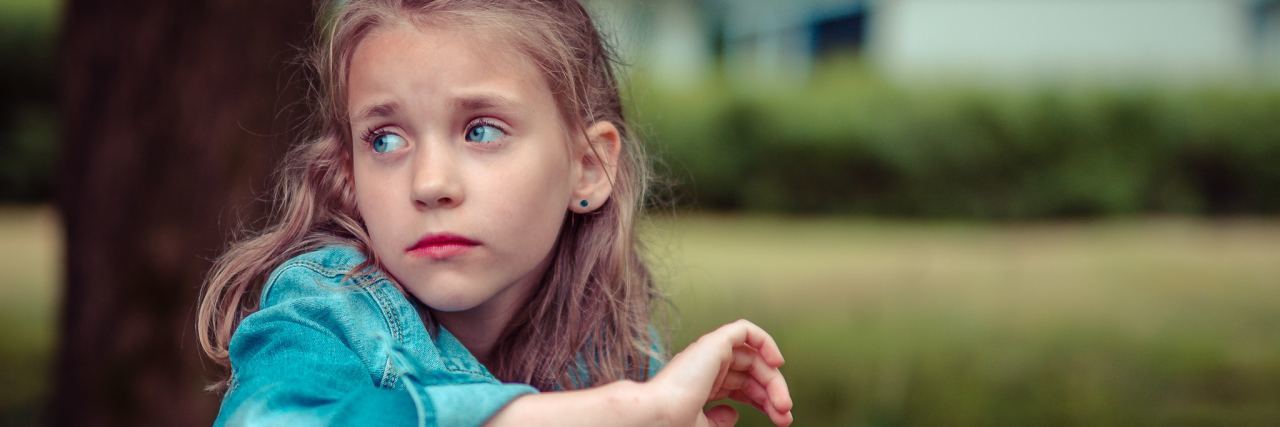These 4 Words Show Why We Need to Take Childhood Suicidal Thoughts Seriously
Editor's Note
If you experience suicidal thoughts or have lost someone to suicide, the following post could be potentially triggering. You can contact the Crisis Text Line by texting “START” to 741741.
I have my own mental health struggles, and sometimes I need to talk about them. Today, I’m going to put those aside for a second, because there are someone else’s struggles I want to try and share with you. She’s an 8-year-old girl, and for precisely the reason it isn’t her real name, we’re going to call her Molly.
Molly is a child who goes to a mainstream school. She doesn’t seem — at first glance, at least — like there is anything particularly “abnormal” about her. It’s not until you get into a deep conversation with Molly that you realize anything is wrong. It’s little things, at first; when she’s studying ancient history in school, it makes sense that she’s talking a lot about those societies’ burial practices as that’s something she’s learned about recently. The longer the conversation goes on, the more you realize that death for Molly isn’t just linked to burial practices from ancient history lessons; it’s something she talks about again, and again, and again.
Children have their obsessions; that’s normal. One child will know everything there is to know about dinosaurs, and another everything about unicorns, or monster trucks. Death, though… death isn’t a usual obsession for a child. Adults who watch a lot of crime shows or murder mysteries is one thing, but an actual fascination with death, in an 8-year-old, is a sign of something deeper.
And then the deeper appeared seemingly out of nowhere, but of course, with hindsight, I should have seen it coming. After Molly did something she shouldn’t, and I suggested “you could not do that,” her response chilled me to the bone.
“I could kill myself.”
Eight years old. She said, “I could kill myself,” and she is 8 years old. Over the years, I have seen people in very dark places, and I have heard that sentence said to me before. Never from someone so young. Never has it hurt so much to hear.
I think in ways, it made me angry. The worst part is, I have no idea how to help her. Despite her walking a path I’ve gone down, I don’t know what to say. How can I tell an 8-year-old that it’s normal to wish everything would stop, but that it gets better? How can I tell a child that things will change, but change is slow and she has to wait to see it? How can I tell someone so small that a world so big is not something to be afraid of? The words turn to jelly in my mouth, and I looked at her, and nothing felt right.
There are many children like Molly in this world. It breaks my heart to think of how many children are just as scared as she is. As the adults in their lives, for maybe a big part of that or a small part: how do we help them? What do we say? How do we make everything OK? And how can we ensure the children of today — the children like Molly — are still around to be the children of tomorrow, instead of being the children six feet underground? I’m not a mental health professional, but I don’t think I need to be to help Molly feel better. I can still do my part, and I still want to. We all can. We can all help Molly, and she’ll always need us to.
Photo by Janko Ferlič on Unsplash

